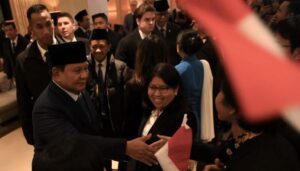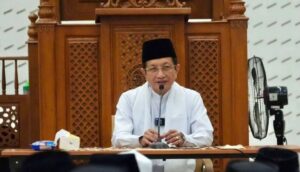Indonesia Launches First International Carbon Trade Transactions

Jakarta, The Gulf Observer: Indonesia officially joined the global carbon trade network on Monday, unveiling its first international carbon trade transactions at the Indonesian Stock Exchange (BEI) in Jakarta.
During the launch event, Environment Minister Hanif Faisol Nurofiq emphasized that the initiative is aligned with Indonesia’s climate goals outlined in the Nationally Determined Contribution (NDC) document. He stressed that the country’s participation in international carbon trading would be governed by Presidential Regulation No. 98 of 2021, which facilitates carbon economic value implementation for achieving NDC targets and controlling greenhouse gas emissions in national development.
Minister Nurofiq highlighted that various instruments, such as the National Registry System (SRN), had been optimized to support Indonesia’s entry into the global carbon market.
Several key energy projects were identified as part of the international carbon trading initiative, including the operation of the Gunung Wugul Mini-Hydro Power Plant in Central Java, which is expected to reduce 5,000 tons of carbon dioxide equivalent (CO2 eq). Other notable projects include the Priok Block 4 Gas and Steam Power Plant (PLTGU) and the construction of the PLTGU Block 3 PJB Muara Karang in North Jakarta, which are projected to cut emissions by 500,000 and 750,000 tons of CO2 eq, respectively.
Additionally, the initiative will include the conversion of single-cycle power plants to combined cycles at the Grati Block 2 PLTGU in East Java and at the Block 2 power plant units in Muara Tawar, West Java, with the potential to reduce 495,000 and 30,000 tons of CO2 eq, respectively.
Minister Nurofiq also noted that, in addition to international carbon trading, the Indonesian government has been raising funds for climate initiatives through performance-based grant agreements with various stakeholders.
This move marks a significant step for Indonesia in its efforts to meet climate commitments and advance sustainable development.


